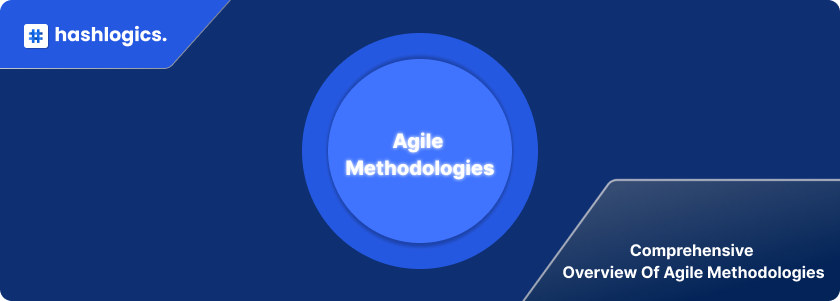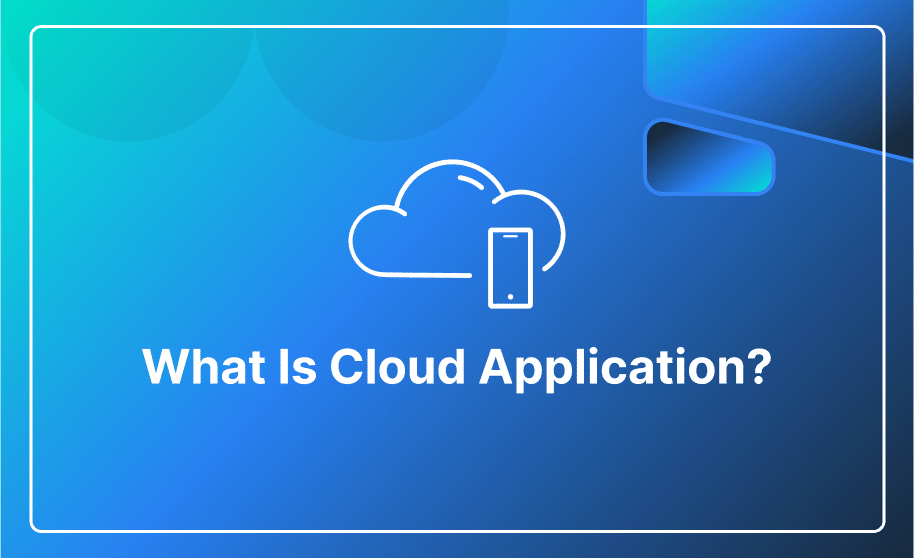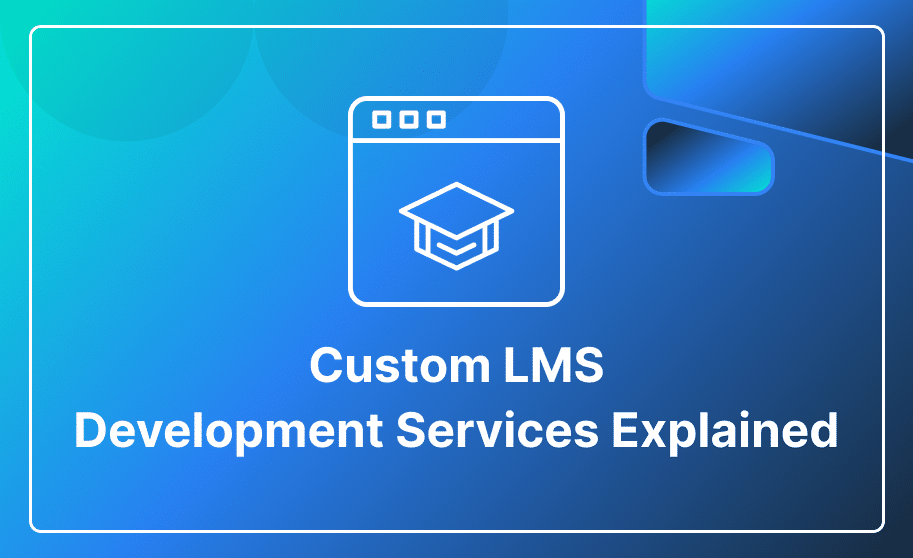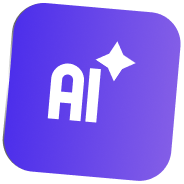Agile Software Development is a methodology in software creation that leverages adaptability, teamwork, and client contentment. Embedded in the Agile Manifesto’s principles, it prioritizes individuals, functional software, customer involvement, and adaptability. This iterative and incremental approach emphasizes swift and regular delivery of a functional product. It fosters tight-knit collaboration between developers and customers, ensuring the product aligns with their needs and desires.
This guide aims to shed light on the essence of Agile software development. In this blog, we will explore the advantages of agile methodology, its principles, methodologies, and the intricate stages of the lifecycle.
What is Agile Methodology in the Software Development Process?
Before discussing agile methodology in the software development process, let’s have a quick overview of what software development is. Software development is the process of creating and designing computer programs or apps.
The Agile Methodology is the latest approach to developing software with flexibility and speed. The methodology has established new concepts of iterative and incremental development methods to ensure certain and speedy delivery. Out-dated methods like Waterfall used to influence the industry, but not anymore.

Comprehensive Overview of Agile Methodologies
The three main methodologies are discussed below:
Scrum:
Scrum is a popular Agile methodology renowned for its ability to unite teams through a clear focus and an effective, cooperative approach to task execution.
What is Agile Scrum Methodology?
Agile Scrum Software Development refers to a flexible and iterative approach to creating software, with a focus on collaboration, adaptability, and customer feedback. In this methodology, development occurs in small, incremental cycles called sprints, allowing for continuous improvement and responsiveness to changing requirements.
The Agile Scrum development process is used by companies of various sizes due to its ability to foster top-notch collaboration and efficiency in project-based work. Agile and scrum can be used independently, but when combined they offer multiple benefits, making Agile Scrum the go-to method for many.
Extreme Programming (XP)
Extreme Programming (XP) was created for Agile software development projects, with a focus on continuous development and customer delivery, employing intervals or sprints, similar to the scrum methodology.
Feature-driven Development (FDD)
Feature-driven development is another software-centric Agile framework. This methodology entails the creation of software models every two weeks and requires the development and design plan for each model feature. It has more rigorous documentation requirements than XP, making it best suited for teams with advanced design and planning capabilities.
What is Agile vs Waterfall Methodology?
In the era of project methodologies, Agile and Waterfall stand as two distinct approaches. Agile is iterative and collaborative in nature and involves cyclic processes. While Waterfall operates sequentially, often following a linear task progression.
In Agile methodology, projects undergo iterations, progressing through development, review, feedback, and approval stages. Successful approval leads to task implementation, while rejections prompt recording, adjustments, and reassessment of prioritization before advancing to the next task or sprint.
On the other hand, Waterfall simplifies the process by moving tasks from requirement definition through design, implementation, verification, and quality assurance, culminating in feature maintenance.

What Are the 3 Cs in Agile Development?
The 3 Cs in agile development are:
- Card.
- Conversation.
- Confirmation.
Closer Look at the Agile Stages of Development:
There are five stages of the agile software development lifecycle:
Ideation:
The first stage of Agile software development is ideation. The Agile Product Owner (PO) collaborates closely with stakeholders, the business team, developers, and prospective app users. Under the guidance of the broader team, the PO constructs a project vision through:
- Defining the purpose and objectives of new software.
- Identifying and documenting business and user requirements.
- Prioritizing tasks and allocating resources.
Development:
Development is the second stage of the agile software development lifecycle. In this stage, teams can start building the initial iteration of the software. The development stage involves various essential production tasks in the Software Development Life Cycle (SDLC), such as UI/UX design, architectural planning, and coding.
Testing:
After the development stage, the app has to go through a quality assurance check before the release. The agile team conducts tests to ensure functionality by:
- Verifying that the code is clean.
- Resolving bugs and errors.
- Conducting trial runs.
Deployment:
After the app is ready to release, the Agile team deploys it to the cloud or an on-premise server. Once deployed, the product becomes live and accessible to the customers.
Operations:
Following the activation, the work continues. Ongoing maintenance is essential for addressing bugs and maintaining functionality. As users interact with the app, there will be chances to gather feedback and make improvements to be released in future iterations.

Pros and Cons of Agile Development
The several possible benefits of Agile software development are:
1. Quick Delivery
Agile methodology helps in quick and efficient product delivery by enabling the development team to iteratively address incremental sections of the Product Backlog, ensuring rapid responses from both end-users and the product owner for continual enhancements. This iterative approach allows faster completion of smaller increments, encouraging ongoing improvements aligned with customer demands in a repetitive cycle.
2. Cooperation
Agile methodology necessitates diverse involvement in every iteration, emphasizing the inclusion of not just the software development team but also the product owner from the outset. Utilizing brainstorming methods and project management tools, all contributors collectively generate ideas and monitor work progression. This collaborative approach within Agile fosters creativity, minimizes misunderstandings, and ensures efficient product creation from inception.
3. Adaptability
As the ultimate goal of any deliverable is to satisfy end-user expectations, constantly altering features is a necessity to perfect a product. During the agile development process, you can make flexible changes in each iteration without interfering with your previous development. This property sets agile apart from a traditional approach like Waterfall whose phase completely depends on the previous one.
4. Rapid Detection of Defects
Operating in small increments enables precise identification of issues, facilitating easy rectification of flaws such as a mobile app’s layout or critical functionalities.
5. Constant Improvement
The agile methodology allows real-time assessment and improvement of a product’s UX/UI design and functionalities, leading to significant time and cost savings when modifying features or addressing defects. Continuously refining the product based on client feedback or interactions avoids the need for rebuilding an entirely new version.
However, agile teams may face unexpected drawbacks, including:
1. Short-term Planning
Agile methodology supports creating expected deliverables when initial goals and directions are vague, allowing swift responses and adaptability to unforeseen events. Yet, this flexibility might pose challenges if core visions are weak, hindering the creation of reliable plans to effectively respond to real-time feedback.
2. No Specific Deadlines and Costs
Agile teams struggle to define specific iteration durations or total project costs due to unforeseen changes in the development process, leading to potential delays in product delivery and unexpected expenses.
3. Ease of Falling Off Track
A challenge with the agile method is the risk of losing focus and deviating from overarching goals. With minimal planning and constant adaptations to evolving consumer needs, a project might stray from its intended direction without a steadfast strategy, clear vision, or strong leadership. This deviation can result in a disjointed product lacking coherence and failing to meet initial requirements.
Conclusion:
Agile Methodology stands as a guiding light of innovation, providing a flexible and iterative framework that has been integral to the success of modern software projects. From its inception to ongoing operations, Agile ensures a customer-centric, adaptive, and collaborative approach to software development.














